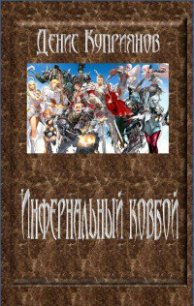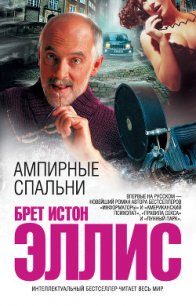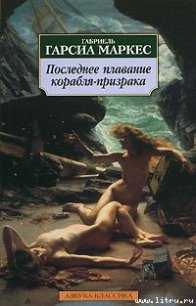Third man out - Stevenson Richard (читать хорошую книгу полностью .TXT) 📗
"Sure thing, Joel. But don't count on me. I'm way out on the periphery of this one."
He laughed and hung up. He doubted my word and I knew why. Temporarily I had become John Rutka, but after I solved the murder and destroyed the files I could become myself again. That was my plan. end user
14
The 8:25 A.M. "Hometown Folks" news insert on Channel Eight led with the story on John Rutka's death. A reporter stood in front of the smoke rising from the charred ruins of a house near the pocketbook factory and announced that police had tentatively identified a body found in the rubble as that of "controversial gay activist John Rutka." A fireman showed up to make the obliga-tory statement that the house had been "fully involved" when the firefighters arrived and to label the blaze "suspicious." Timmy had already left for work and wasn't there to ask, "What was the fire suspicious of?"
Bub Bailey appeared briefly to say that Rutka had been reported kidnaped earlier in the evening and that additional evidence pointed to foul play. A full investigation was being launched, he said.
Other stories on the "Hometown Folks" news-quickie concerned a full-landfill crisis in a Greene County town where residents had begun to heap their garbage in the town supervisor's elderly mother's front yard; a statement from recent U.S. Second Circuit Appeals Court nominee and former Albany State football star Emmett "Pincher" Goerlach insisting that his remark in a 1989 speech to the Albany Rotary Club urging mandatory HIV testing for all unmarried Americans was "taken out of context" by its ACLU critics; and an elementary school in Watervliet that was raising money to send a bird with a broken wing to the Mayo Clinic.
Ronnie Linkletter, shoved from the heights of six and eleven after being outed in Queerscreed, came on for a quick do-si-do in front of a weather map that had a big winking smile face over the Northeast. This meant it would be sunny. I studied Linkletter's boyish face for signs of stress or anxiety but could discern none. His seemed to be as carefree and unrevealing as the smile face on the map.
Sandifer watched the news with me. When the report on the fire and Rutka's death came on, he slid into despondency and then shifted around and grew suddenly angry when Ronnie Linkletter appeared.
"He could be the one," Sandifer said. "He was one of the people who told John he was going to get him for what he did, and he could be the one who did it."
"He could."
I dialed around to the other area stations but had missed their local reports. The Schenectady PBS outlet was on the air even at this early hour with its pledge-week team and a fund-raising festival of June Allyson- Jimmy Stewart movies and reruns of The Bell Telephone Hour. The station was advertising a repeat showing of a Kingston Trio concert for its hipper viewers.
I brought the Times Union in from the front stoop. Because of the paper's earlier deadline, its report on Rutka and the fire was even sketchier than Channel Eight's had been. In the T-U, Rutka was a CHA, a "controversial homosexual activist."
I drove Sandifer out to Handbag so that he could check in with Bub Bailey and tell him some lies. We coordinated our stories on the way out. I would not have thought of myself as so skillful a dissembler as John Rutka, but it was I who took the lead in contriving a scenario for the loss of the files. The well-practiced Sandifer slid right into the routine.
Five messages were on Rutka's answering machine when Sandifer checked it. Bub Bailey asked Sandifer to phone him as soon as Sandifer got in. A Times Union reporter asked for a callback. Ann Rutka informed Sandifer that the funeral would be in two days, on Saturday, at nine-thirty, at St. Michael's in Handbag. There would be no calling hours at the funeral home. And two Queer Nation friends of Sandifer's and Rutka's phoned, both angry and distraught. One suggested an action to protest "gay genocide."
Sandifer reached Bub Bailey, who said he'd like to speak with Eddie and would drive over to the house. I listened while Sandifer ranted on cue to the T-U reporter. He managed to bring Ronald Reagan into his remarks about Rutka's murder in Handbag, as well as George Bush, and of course the fiend Ed Koch. It was as if Sandifer was trying to say what Rutka himself would have had to say about his own murder but he couldn't get it quite right. Or maybe he duplicated exactly what Rutka's spiel would have been. There wasn't any way to know.
At eleven-thirty I was back in Albany. I left the car in Washington Park and hiked over to State Street and the row of elegant turn-of-the-century manses that lined the northern edge of the park. Like most of the houses in the row, the big redstone Victorian castle I approached had been cut up into apartments for the bureaucrats and professionals who had long since replaced the rich merchants and Democratic machine hacks as Albany's life-blood. The rents were high, the address correct, and the view splendid, of the leas and copses in Frederick Law Olmsted's upstate vast green gem.
The park was lovely and enduring, having survived even Nelson Rockefeller's attempt in the 1960s to run an interstate highway through it, and so detracting in a small way from the late governor's success as the Godzilla of urban design.
I pressed the button over a name in a recessed entry-way that once must have been the servants' entrance.
"Yo?"
"It's Strachey."
A buzzer sounded and I pulled open a heavy oak door with an etched-glass window. I slid the gate open on the ancient two-passenger Otis, shoved it shut behind me, and pushed the button for four. The door to the sole top-floor apartment had been left open a crack and I went in and shut the door behind me.
"Hey, Strachey."
"Scotty."
He motioned and I followed him through the apartment with its marble and mirrors and silk flowers and gray leather couches.
Scott S. Scott was barefoot and otherwise clad only in blue nylon running shorts and red suspenders-his brunch costume, I guessed. His classically proportioned physique was flawless except for a barely perceptible incipient bulge at the sides, and his tan had been evenly applied, the kind you might expect to see on a movie star of the 1950s or a Kennedy.
I said, "I thought only Larry King wore suspenders like that anymore."
"Well, I get a lot of customers who are nostalgic for the eighties."
He led me out onto a rooftop garden that was shielded from sight by high hedges, and we sat under a honeysuckle-covered trellis alive with bees slurping nectar.
"Can I get you a Bloody Mary? Some blow?"
"Is that iced tea in that pitcher?"
"No, I think that's beer from last night."
"Thanks, I'll pass."
"The kid who cleans up hasn't come in yet."
I said, "Any problems with the help these days?"
I had met Scott S. Scott four years earlier, when he hired me to look into allegations by several of his customers that one of the male prostitutes he employed was attempting to blackmail well-off, deeply closeted customers. I identified the self-starter and arranged for his transportation to Southern California, where he later became vice president of a television home-shopping network.
Scott said, "No, the boys are cool. They know I won't put up with shit. And I'm more careful now who I hire. I run background checks. I want guys from stable homes who preferably attend church. Would you be interested in doing some background work? I use the Fricker Agency, but sometimes they get sloppy."




